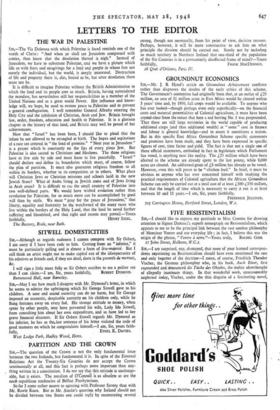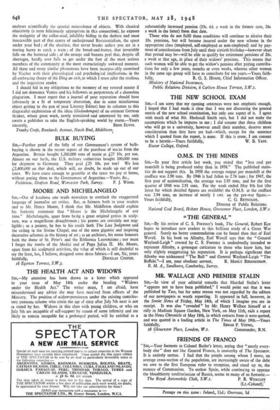Sta,—I am surprised, nay, dismayed, that none of your learned
correspon- dents expatiating on Resistentialism should have even mentioned the one and only begetter of the doctrine—I mean, of course, Friedrich Theodor Vischer, the German philosopher who, in his book, Auch Einer, first expounded and denounced die Tiecke des Objekts, the malice aforethought of allegedly inanimate things. In that wonderful work, unaccountably neglected today. Vischer, under the thin disguise of a fascinating novel, analyses scientifically thc spiteful malevolence of objects. With classical objectivity (a term felicitously appropriate in this connection), he exposes the malignity of the collar-stud, infallibly hiding in the darkest and most inaccessible part of that centre of underground Resistentialism, the space under your bed ; of the shoelace, that never breaks unless you are in a tearing hurry to catch a train ; of the bread-and-butter, that invariably falls on the buttered side ; of the orange and banana peel that, despite all shortages, hardly ever fails to get under the foot of the most serious members of the community at the most excruciatingly awkward moment. All these and many similar phenomena have been insurpas:ably examined by Vischer with their physiological znd psychological implications in the all-embracing theory of the Ding art sich, to which I must refer the studious and the inquisitive reader.
I should fail in my obligations to the memory of my revered master if I did not denounce Ventre and his followers as perpetrators of a shameless plagiarism. I must regret that a journal of your reputation should have (obviously in a fit of temporary aberration, due to some mischievous object getting in the pen of your Literary Editor) lent its columns to this disgraceful exploitation of the ideas (Gedankengut) of an eminent German thinker, whose great work, newly translated and annotated by me, only awaits a publisher to take the English-speaking world by storm.—Yours































 Previous page
Previous page